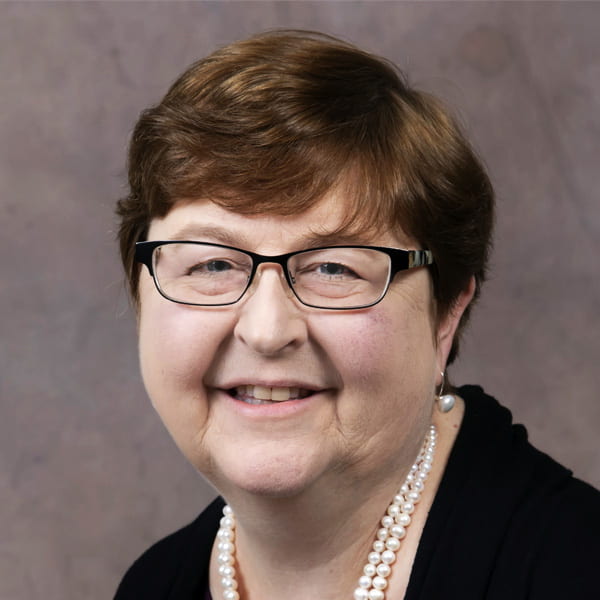Dear School of Medicine community,
As the weather and leaves turn, the Task Force on Climate & Culture is embracing this season of reflection and change. We’re hunkered down with WashU’s external consultant, Catalyst, distilling your experiences and perspectives. Your valued input will inform recommendations to improve and sustain a culture of safety and inclusion.
While we’re immersed in work to improve our climate and culture, we’d like to offer another brief Q&A with Task Force members who have committed countless hours and thoughtful insights throughout this process. This month we’re sharing perspectives from Rakhee Bhayani, MD, a professor of medicine, vice chair for the Advancement of Women’s Careers, and founder and director of the Department of Medicine’s Forum for Women in Medicine; and Lisa Tabor Connor, PhD, MSOT, OTR/L, associate dean for the Program in Occupational Therapy, the Elias Michael Professor of Occupational Therapy, and professor of neurology.

Why was it important to you to join the Task Force?
Being part of the Task Force allows me to actively engage with the campus community, leveraging diverse knowledge and experiences to create a more equitable and respectful environment. The work of the Task Force entails not only identifying issues but finding solutions to address underlying cultural aspects, and laying the foundation for a lasting, inclusive and supportive campus environment. I’ve learned the depth and complexity of the issues contributing to the campus culture. Progress may be gradual, but the small steps we take can have a significant cumulative impact. Addressing underlying cultural aspects is fundamental to creating a more inclusive and equitable campus environment. By focusing on the root causes, we have the potential to bring about long-lasting positive change that benefits everyone.
— Rakhee Bhayani, MD

Tell us something you’ve learned or observed while working on this Task Force.
The climate and culture of the School of Medicine is an important consideration for the people in my program for recruitment, retention, professional development, and overall well-being during their time at the university. I have valued the opportunity to hear the perspectives about our climate and culture from other members of our community such as trainees and other faculty at various stages of their careers. Their perspectives have opened my eyes regarding issues that people face here and the tremendously creative ideas that they bring to the table about enhancing our environment. I feel fortunate to have the opportunity to interact with a wide variety of people on this Task Force.
— Lisa Tabor Connor, PhD, MSOT, OTR/L
In addition to these insights from our Task Force members, we wanted to share an opportunity for you to provide feedback to the WashU Committee to Examine Remembrance and Commemoration. Chancellor Andrew D. Martin established this committee earlier this year to develop a framework for the naming and renaming of university features including buildings, professorships and scholarships. The committee has proposed a set of principles for naming and renaming these features and invites your input on this process via their website or a virtual town hall to be held at 11 a.m. on Monday, October 30.
Please know that our Task Force continues to welcome your feedback on the reflection and work underway on the Medical Campus. We provide resources to report concerns or share your insight, as well as resources on workplace inclusivity available through our partnership with Catalyst.
Most sincerely,
Benjamin Garcia, PhD, co-chair
Raymond H. Wittcoff Distinguished Professor and Head of the Department of Biochemistry & Molecular Biophysics
Dineo Khabele, MD, co-chair
Mitchell & Elaine Yanow Professor and Head of the Department of Obstetrics & Gynecology
Renée Shellhaas, MD, MS, administrative director
David T. Blasingame Professor of Neurology and Associate Dean for Faculty Promotions & Career Development